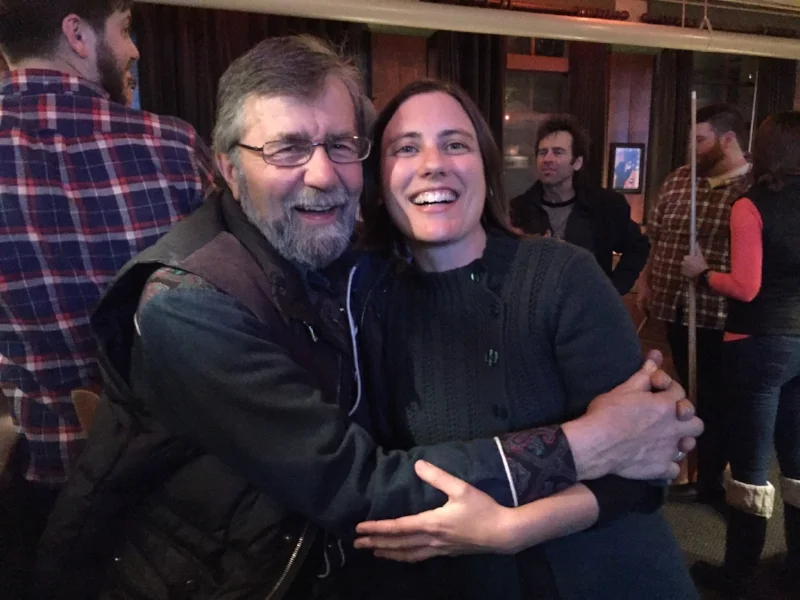Reflections on my first RVCC annual meeting – a salve in tumultuous times
When Nils welcomed me to RVCC in November, he said, “Welcome to the RVCC team, and the movement.” Movement? As a newbie to RVCC, I wasn’t quite sure what he meant. I learned quickly that there’s no better place to understand the we in RVCC than our annual meeting.
I jumped in. It started small and fast. Karen and I, working steadily at the hub, our intrepid leadership team, the spokes. Goals and themes became breakout sessions and invited speakers. RSVPs slowly trickled in. Food was ordered. But I still couldn’t quite make out the contours of our movement.
The RSVPs became a participant list of almost 100 names. People from ten states in the West. County commissioners, state agency staff, Forest Service and Natural Resource Conservation Service leaders, academics, journalists, innovators from non-profits and community based organizations. Slowly, I began to see. The stuff of conferences was gathered (name tags stuffed and flip charts packed). And the snow fell.
The snow kept falling (it would be recorded as the biggest snow storm in twenty years). And yet, our people arrived. Names on a list, now faces. Smiles and hugs shared between old friends. New friendships created. Stories told, opinions aired, and lessons shared. At every turn, the most creative, inspiring, eloquent and dedicated people I’ve ever met.
I began to understand this Movement and our strength. I began to understand that RVCC is needed now more than ever before.
Here’s what I learned . . .
THE WE OF RVCC
We want to make our lives and our communities better. We are not afraid to talk about the messy stuff to get us there. We are ready and willing for the tough conversations.
We believe in people, partnership, and place.
We believe conservation is not defined by political party, property lines, or population size. We believe in integration—of conservation and community, of economic and environmental health.
We believe in transformation and possibility. We believe in solutions.
We believe in inclusion and democracy.
We believe in good policy. We like diving in to the details of how policies work (or don’t) on the ground—we want find the ways that work.
We want to leverage our power as a movement. And we’re willing to put in the hard work to get there.
WE NEED YOU
We believe the whole is greater than the sum of its parts. We want you to be a part of this transformation and change.
We're following Mark Rey's advice during his talk at RVCC: Don't get distracted. Do what you do well.
In 2017, RVCC will be focused on policy, learning, and stories. We will work on federal policy through efforts like the Farm Bill and budget appropriations, we will host learning exchanges, and develop shared communication strategies.
Join our policy work group, be a part of our collective communications, participate in a learning exchange. Contact me and Karen today at: RVCC@wallowaresources.org.
THANK YOU! ASHLEY ROOD
ME & JOHNNY SUNDSTROM, PART OF THE WE IN RVCC - PHOTO BY S. CAMPEN!


